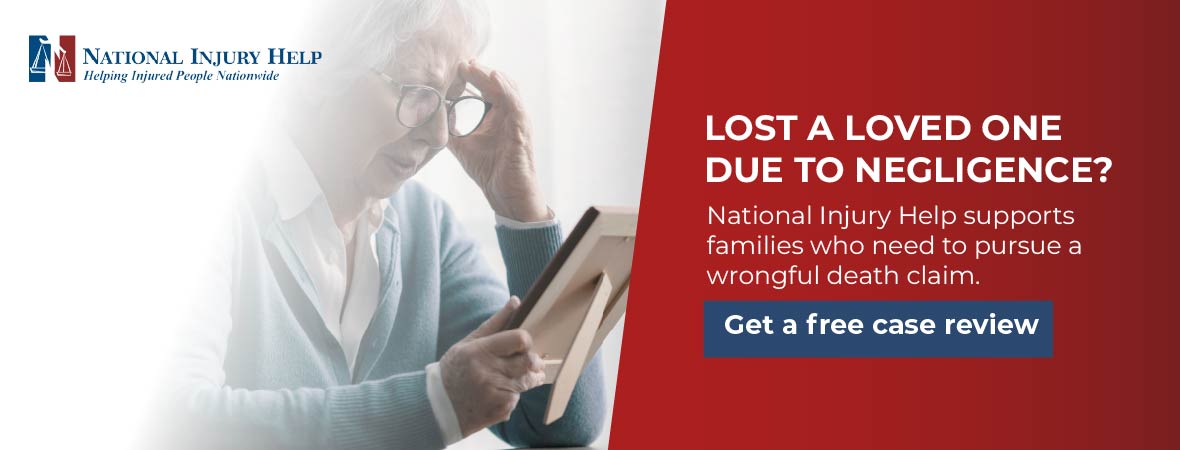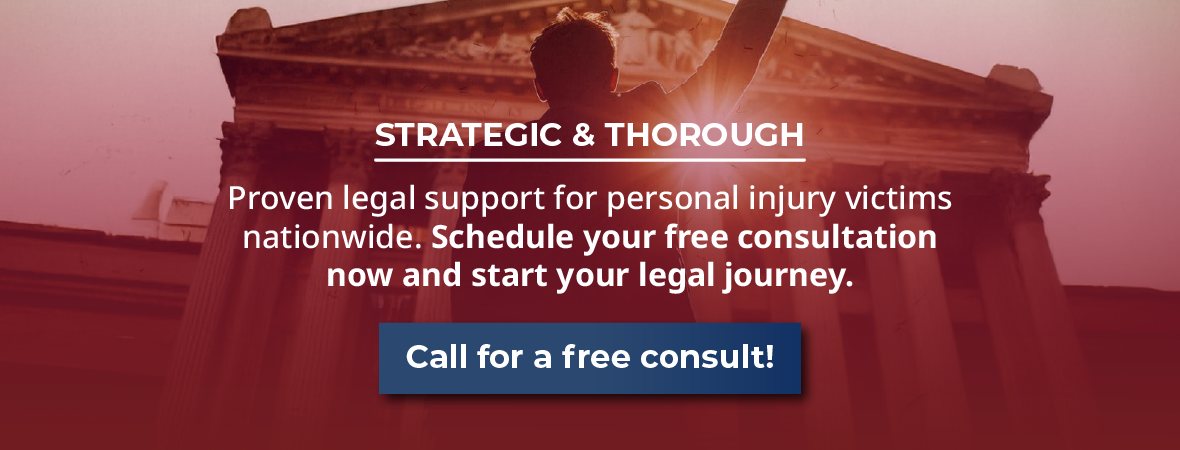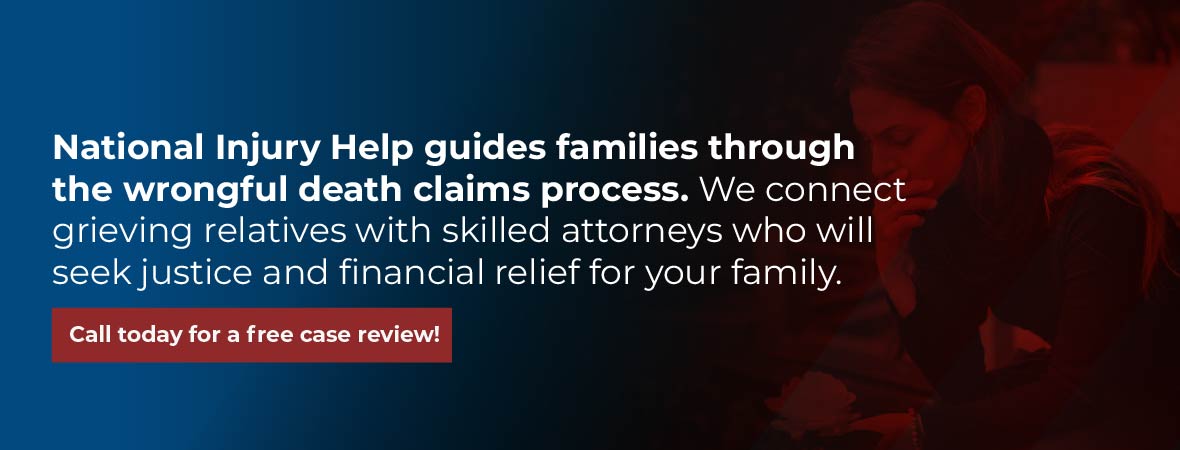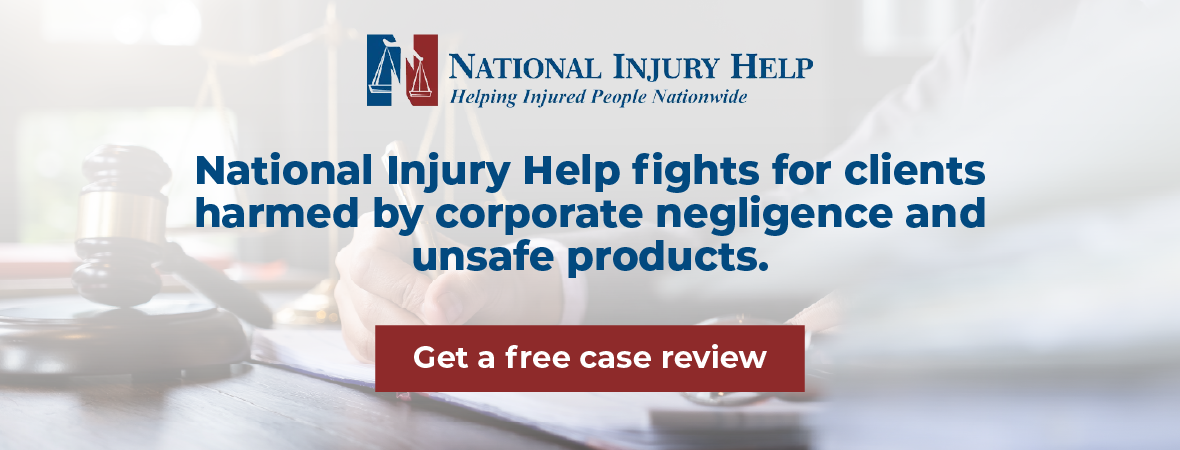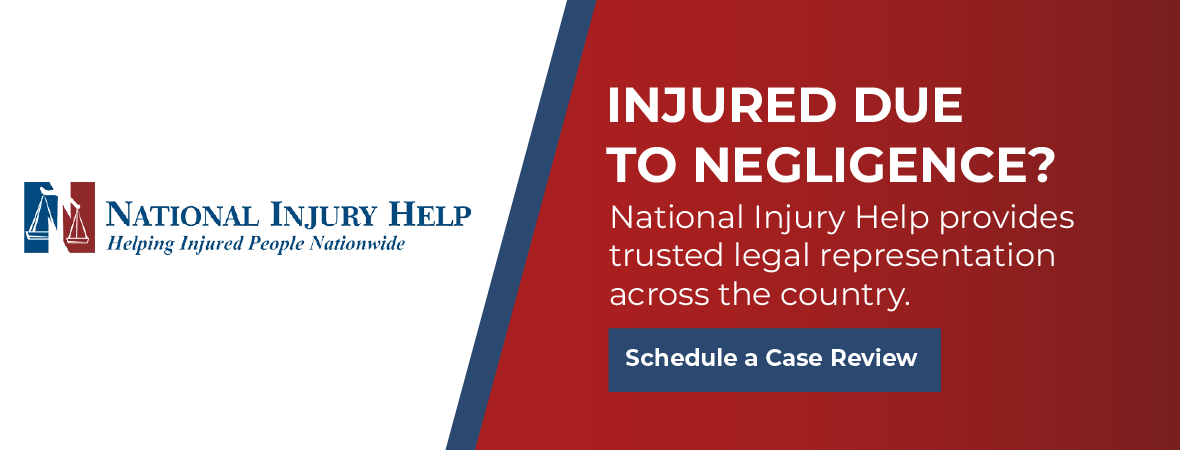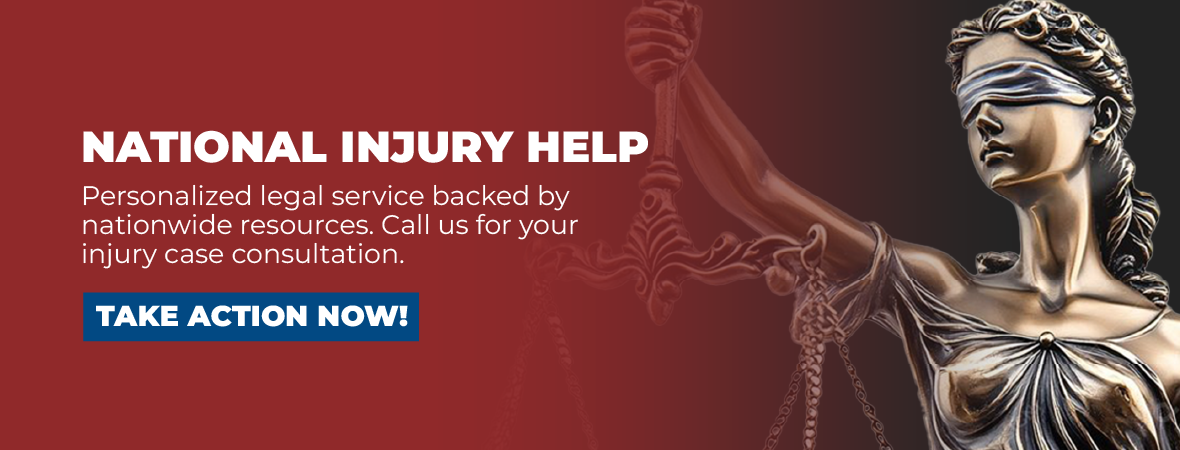Losing a loved one due to someone else’s carelessness is heartbreaking. This article explains how a wrongful death attorney can help you file a claim and seek justice for your family. Contact National Injury Help today. We will stand with you and help you pursue the compensation your family needs.
Losing a loved one because of someone else’s carelessness is one of the most devastating experiences a family can endure. It brings shock, pain, and grief, and when the loss is preventable, it also brings questions, anger, and a deep desire for accountability.
In such moments, families do not just mourn; they struggle. They deal with sudden funeral costs, the loss of income, and the painful absence of someone who gave love, support, and stability. In the middle of it all, the legal system may feel like a distant, confusing maze. But with the help of a skilled wrongful death attorney, families can gain clarity, fight for justice, and rebuild their lives.
This comprehensive guide explains what a wrongful death legal claim involves, who can file, the types of compensation available, how to prove a case, and what to expect during the legal process. If your family is facing the unimaginable, you are not alone. Legal help is available, and this article will walk you through everything you need to know.
What Is a Wrongful Death?
A wrongful death occurs when a person dies as a result of another party’s negligence, recklessness, or intentional act. These claims are civil lawsuits that focus on financial recovery for the surviving family members.
The concept is based on a simple principle: if the deceased could have filed a personal injury lawsuit had they survived, their family should be allowed to file a wrongful death lawsuit on their behalf.
While a criminal case may also result from the same incident, such as charges for reckless driving or manslaughter, a civil wrongful death claim is entirely separate. Criminal cases are meant to punish the wrongdoer. Civil cases are meant to compensate the family.
A person can be found not guilty in criminal court but still held responsible in a civil lawsuit. That is because civil claims require a lower standard of proof, namely that it is more likely than not that the defendant caused the death.
Common Causes of Wrongful Death
A wrongful death can happen in many different ways. Below are some of the most common causes that result in legal claims:
- Car Accidents: Negligent drivers, distracted drivers, or those under the influence cause thousands of fatal crashes each year.
- Medical Malpractice: Misdiagnoses, surgical errors, or medication overdoses can lead to preventable patient deaths.
- Workplace Accidents: Construction falls, equipment malfunctions, or unsafe work environments may result in fatal injuries.
- Defective Products: Faulty electronics, unsafe medications, or poorly manufactured vehicles can all cause harm.
- Nursing Home Neglect: Dehydration, untreated infections, or lack of supervision can lead to the death of elderly residents.
- Unsafe Properties: Fatal falls, drownings, or violent attacks can happen when landlords or property owners fail to maintain safe conditions.
These tragic events share one thing in common: they were avoidable. Families who pursue a wrongful death legal claim often find that doing so not only secures compensation but also prompts needed changes to prevent future harm.
Who Can File a Wrongful Death Legal Claim?
Each state has its own rules, but most follow similar guidelines about who may bring a claim. Typically, the right is given to close family members or the personal representative of the deceased person’s estate.
- Spouses: The surviving husband or wife is almost always eligible to file.
- Children: Biological and legally adopted children, including adult children.
- Parents: If the deceased was a minor or had no spouse or children, parents may file.
- Personal Representatives: If no immediate family is available or if the family prefers, the estate’s executor can bring the claim.
These lawsuits are generally filed on behalf of all eligible survivors. Even if only one person files, any recovery is later distributed among all qualifying family members based on their relationship to the deceased and the extent of their loss.
Survival Actions vs. Wrongful Death Claims
A wrongful death claim is filed by the surviving family members of someone who died due to another party’s wrongful act or negligence. This type of claim focuses on the losses the family suffers because their loved one is no longer alive.
The people allowed to file a wrongful death claim vary from state to state. Typically, it includes a surviving spouse, children, or parents. In some cases, a domestic partner or other financially dependent relative may also qualify. The money awarded in a wrongful death case usually goes directly to the surviving family members who brought the lawsuit.
A survival action, by contrast, is a claim on behalf of the deceased person’s estate. It covers the damages the victim could have pursued if they had survived the accident or injury, even for a short time. In other words, it continues the legal claim the person could have filed themselves, had they lived long enough to do so.
Survival actions can cover:
- Medical expenses the deceased incurred before death
- Lost wages between the time of injury and death
- Pain and suffering experienced before passing
- Property damage linked to the incident
Let’s say someone was seriously injured in a car crash and spent three weeks in the hospital before passing away. During that time, they experienced intense pain, missed work, and incurred major medical bills. A survival action allows the estate to seek compensation for those specific damages.
Once awarded, the damages from a survival action go into the deceased person’s estate and are distributed according to the person’s will or state inheritance laws. This means the money could go to heirs or beneficiaries even if they are not the same people filing the wrongful death claim.
Can You File Both?
Yes, in many cases, families are legally allowed to file both a wrongful death claim and a survival action. Since each covers different types of losses, one for the family and the other for the victim, the two can work together to provide a more complete picture of the harm caused by the responsible party.
Filing both ensures:
- The family receives compensation for the emotional and financial void left behind
- The deceased person’s suffering and financial costs are not overlooked
- The estate is compensated for the value of lost wages or property before death
By pursuing both claims, families avoid leaving money on the table. They are also better positioned to hold the at-fault party fully accountable.
What Compensation Can You Receive?
Compensation in a death lawsuit is divided into three main categories: economic, non-economic, and punitive damages.
A. Economic Damages
These cover the actual financial losses caused by the death. Examples include:
- Medical expenses related to the injury that caused the death
- Funeral and burial or cremation costs
- Lost wages and employment benefits the deceased would have earned
- Loss of household services, like childcare, cleaning, or home maintenance
An economist or financial expert may help estimate the total value of these losses, especially when projecting future income and benefits.
B. Non-Economic Damages
These address the emotional and relational impact on surviving family members. They can include:
- Pain and suffering caused by the grief and trauma of the loss
- Loss of companionship, emotional support, and intimacy for spouses
- Loss of parental guidance and care for children
- Emotional distress and reduced quality of life
These damages are harder to quantify, but they reflect the heart of what families have lost. Jurors often consider personal stories, family photographs, and emotional testimony to understand the full impact.
C. Punitive Damages
Punitive damages are meant to punish the wrongdoer and discourage others from similar conduct. They are awarded in rare cases where the responsible party acted with gross negligence or intentional harm.
Examples include:
- A drunk driver with prior DUI convictions
- A company knowingly selling a dangerous product
- A medical provider who ignored repeated warnings about patient safety
While not available in every case, punitive damages can significantly increase the value of a claim.
How Long Do You Have to File?
Every state sets a deadline for filing a wrongful death lawsuit. This is known as the statute of limitations.
Most states give families between one and three years from the date of death to file. Missing this deadline usually means you lose the right to bring your case, no matter how strong it is.
There are exceptions in some cases, such as:
- If the surviving family member is a minor
- If the cause of death was concealed and discovered later
- If the defendant is a government entity (which often has shorter filing deadlines)
Acting quickly is essential. Important evidence can be lost over time, witness memories fade, crash debris is cleared, and video footage is erased. The sooner a wrongful death attorney begins investigating, the stronger your case will be.
What Must Be Proven in a Wrongful Death Case?
In every wrongful death lawsuit, there are four elements that must be clearly shown with evidence. Think of these as the building blocks of your claim. If even one of them is missing or too weak, the case may not succeed.
1. Duty of Care
The first step is proving that the person or company being sued had a legal duty to act with care toward the deceased person. In everyday life, we all have certain responsibilities to others. Drivers have to obey traffic laws and stay alert behind the wheel.
Doctors must provide a standard level of medical care. Business owners must keep their properties reasonably safe for customers and visitors.
For example, if your loved one was killed in a car accident, your lawyer would argue that the other driver had a duty to drive safely and follow the rules of the road. In a nursing home death, the facility would have had a duty to provide adequate care and supervision.
2. Breach of Duty
The second element involves showing that the duty of care was broken. In legal terms, this is called a “breach.” A breach means the person or company failed to act as a reasonable person would have in the same situation.
There are many ways a duty can be breached. A distracted driver who runs a red light, a doctor who ignores signs of a serious illness, or a property owner who fails to fix a dangerous staircase can all be examples of breaching their duty of care.
This part of the case focuses on what the responsible party did or didn’t do, and how that action (or inaction) fell below the standard of what is expected.
3. Causation
Next, your legal team must prove that the breach of duty directly caused the person’s death. This part often requires careful investigation, expert analysis, and a clear timeline.
For example, imagine a trucking company lets its drivers work far beyond safe driving hours. If that driver then fell asleep at the wheel and caused a fatal crash, your attorney would argue that the company’s rule-breaking directly caused the loss of life. On the other hand, if the crash was caused by something unrelated, like a third vehicle or a heart attack, the case might be harder to prove.
This step often involves sorting through complex details, especially when the cause of death isn’t obvious or when multiple people may be involved. Proving causation with strong evidence can make or break a wrongful death case.
4. Damages
Finally, your lawyer must show that the family suffered real, measurable losses because of the death. These losses are called “damages” and can be both financial and emotional.
Examples of damages in wrongful death cases include:
- Funeral and burial expenses
- Medical bills related to the final injury or illness
- Loss of the deceased person’s income or future earning potential
- Loss of benefits such as health insurance or pension contributions
- Emotional pain, grief, and mental suffering
- Loss of companionship, love, guidance, and support
- Costs of therapy, counseling, or medication for surviving family members
In some cases, if the person who died had dependents, such as young children, calculating future losses becomes even more important. A financial expert may help estimate how much income and support the deceased would have provided throughout their life.
How Can a Wrongful Death Attorney Help?
Trying to manage a death lawsuit alone can be overwhelming. An experienced attorney does more than file paperwork; they take the burden off your shoulders and work to maximize your family’s recovery.
A. Emotional and Legal Support
Losing someone is exhausting. A wrongful death attorney helps you process the legal side while you focus on healing. They explain your rights, communicate with insurance companies, and act as a buffer against additional stress.
B. Investigation and Evidence Gathering
Attorneys preserve crucial evidence early on. They might:
- Interview witnesses and take sworn statements
- Hire medical experts, accident reconstructionists, or economists
- Obtain phone records, black box data, or security footage
- File subpoenas to retrieve internal emails or maintenance logs
All of this builds a stronger case and puts pressure on the defendant to settle fairly.
C. Insurance Negotiation
Insurance companies often downplay wrongful death damages. Their adjusters may question lost earnings, emotional impact, or blame the victim to reduce payouts.
Your attorney pushes back with evidence and experience. They negotiate from a position of strength and are prepared to go to trial if needed.
D. Trial Preparation and Representation
If the case goes to court, your attorney:
- Drafts legal motions
- Questions witnesses and experts
- Prepares exhibits and visual aids
- Coaches you for testimony
- Guides the jury through the case
A fatal accident lawyer with courtroom experience can make a major difference in the final result.
What Is the Timeline for a Case?
Every case is different, but here is a general outline:
- Initial Consultation: Free review of your case
- Investigation: Gathering evidence, interviewing witnesses
- Filing the Lawsuit: Officially starts the legal process
- Discovery: Both sides exchange information and documents
- Mediation or Settlement Talks: Attempts to resolve before trial
- Trial: If no agreement is reached, the case is presented to a judge or jury
Some cases resolve in six to twelve months. Others take years, especially if the issues are complex or the defense tries to delay. Throughout it all, your lawyer keeps you informed and focused.
Why Choose National Injury Help?
When your life has been turned upside down by a serious injury or the loss of a loved one, choosing the right law firm matters more than ever. You want a team that understands your pain, protects your rights, and takes the pressure off your shoulders. That is exactly what we offer at National Injury Help.
Our firm combines legal excellence with genuine compassion, and we have helped families all across the United States find justice, healing, and the financial support they need to rebuild their lives.
A Reputation Built on Results and Relationships
At National Injury Help, we have earned the trust of thousands of clients through a deep commitment to both results and relationships. Legal claims are not just about paperwork and courtroom arguments; they are about people. Behind every case is a mother, father, spouse, or child whose world changed in an instant.
Our team understands the emotional weight that comes with losing someone in an accident or watching a loved one suffer. We do not treat you like a file number. We take time to listen, explain things in plain language, and check in regularly throughout the legal process.
Our lawyers are not just skilled advocates in court. They are also patient listeners, clear communicators, and strong allies who stand with you every step of the way.
You Pay Nothing Unless We Win
We know that the last thing most people need after an accident or tragedy is another bill. That is why we work on a contingency fee basis. This means:
- There is no upfront payment.
- There are no hourly legal fees.
- You owe us nothing unless we win your case.
We only get paid if we secure a settlement or court victory on your behalf. If we do not win, you do not pay. It is that simple.
This model allows anyone, regardless of their income level or background, to access top-tier legal representation. You should never be forced to choose between getting justice and keeping food on the table. With National Injury Help, you can have both.
Full-Service Legal Support From Start to Finish
When you hire our firm, we handle every part of your case so that you can focus on healing and being with your family. Here is what we take care of:
- Investigating the cause of the accident
- Collecting and preserving evidence
- Requesting medical records and expert opinions
- Filing all legal documents correctly and on time
- Negotiating with insurance companies
- Preparing your case for trial, if needed
We also work with outside experts like accident reconstruction specialists, medical professionals, and vocational analysts to strengthen your case. These experts help us explain complex details in a clear and persuasive way, something that can make a huge difference during negotiations or in front of a jury.
Whether your case settles in a few months or goes all the way to trial, we are prepared to go the distance.
Clear Communication and Regular Case Updates
One of the biggest complaints people have about law firms is the feeling of being left in the dark. At National Injury Help, we do things differently. We believe you deserve to know what is happening with your case at every stage.
Our team will:
- Explain your legal options in plain English
- Return your calls and emails promptly
- Update you regularly on progress, deadlines, and next steps
- Let you know what to expect in court, at depositions, or during settlement talks
We will never make decisions without your input or pressure you into a settlement that feels unfair. Your voice matters, and your comfort with each choice is always our top priority.
We Are Here for You, Not Just Your Case
Legal support is only part of what we offer. The truth is, people who come to us are often overwhelmed, grieving, or unsure of what to do next. We get that. You are not expected to have all the answers right away. That is what we are here for.
We have helped families:
- Navigate confusing insurance policies
- Apply for victim compensation programs
- Find the right doctors and specialists
- Connect with grief counseling or emotional support resources
- Make smart financial decisions during settlement negotiations
We do not just aim to win your case. We want to help you find a path forward, one that is grounded, supported, and focused on long-term healing.
A Track Record You Can Trust
Choosing a lawyer is a big decision. You need to know that the firm you hire has the experience and resources to go toe-to-toe with powerful insurance companies and defense teams. Our attorneys are seasoned professionals who have taken on some of the largest corporations in the country and won.
But beyond our track record in court, we are proud of what our past clients say about working with us. They talk about how we treated them with respect, listened when they needed to vent, and stood by them even during the hardest moments. That trust is something we work hard to earn and keep.
Ready When You Are
You do not need to have all the details figured out to call us. You do not even need to know if you want to file a case yet. The most important thing is starting the conversation. We offer free consultations with no pressure and no obligation. Our team is here to listen, answer your questions, and give you honest guidance.
Let us explain your options, tell you how the law works in your state, and help you decide what is best for your family. Whether you choose to move forward or not, the consultation is free and completely confidential.
Frequently Asked Questions
Can more than one family member sue?
Yes, multiple family members may be eligible to receive compensation, but there is typically only one wrongful death lawsuit filed per case. That legal claim is brought on behalf of all wrongful death beneficiaries, which may include a spouse, children, parents, or other dependents, depending on your state’s laws.
Usually, the person filing the claim is the personal representative (or executor) of the deceased’s estate. Once the case is resolved, the court or the settlement agreement outlines how the compensation should be divided among the surviving family members based on their relationship to the deceased and the losses they suffered.
What if the responsible person has no insurance?
Even if the individual at fault has no insurance, your attorney will look deeper into the facts to identify other potentially liable parties. Many wrongful death cases involve more than one person or organization. For example:
- If the death occurred in a car crash, there may be a company or government entity responsible for vehicle defects or road design.
- If it was a fall at an apartment complex, the landlord or property manager could be liable for unsafe conditions.
- In a workplace accident, third-party contractors, manufacturers of defective equipment, or safety inspection failures could play a role.
Experienced wrongful death attorneys know how to investigate these layers and uncover additional insurance policies that could apply, such as business insurance, umbrella coverage, or homeowner’s liability. This makes it more likely that compensation can still be recovered even if the individual directly involved lacks coverage.
What is the average settlement in a wrongful death case?
There is no one-size-fits-all answer. Wrongful death settlements vary widely depending on many different factors, including:
- The victim’s age and health
- Their income and earning potential
- Medical and funeral costs
- The emotional and financial impact on surviving family members
- Whether the defendant’s actions were negligent or intentional
- The strength of the evidence
Some cases may resolve for tens of thousands of dollars, while others result in multi-million-dollar settlements or verdicts. Your attorney will carefully calculate a fair amount based on both the economic losses (such as lost income) and non-economic damages (such as loss of companionship and emotional pain). A skilled legal team will also account for future losses, such as what the deceased might have earned over a lifetime, especially if young children were left behind.
Can I file a claim if the person who died was partly at fault?
In many states, the answer is yes. Most states follow comparative fault laws, which allow surviving family members to pursue compensation even if their loved one shared some of the blame. However, the total amount awarded may be reduced based on the percentage of fault assigned to the deceased.
For example, if your loved one was found to be 30 percent responsible for an accident and the damages totaled $1 million, your family could still recover $700,000. In a few states, if the deceased was more than 50 percent at fault, compensation may not be allowed, but this depends entirely on local law.
That is why it is critical to speak with a wrongful death attorney who understands the rules in your state and can argue against unfair blame from the other side.
How soon do I need to act?
Each state has a legal deadline, called the statute of limitations, for filing a wrongful death lawsuit. In most states, this deadline is two years from the date of death, but some allow only one year, while others permit more time in special situations (such as when the cause of death was discovered later). Missing the deadline typically means losing your right to file forever, no matter how strong the case.
Starting the process early gives your lawyer time to gather records, speak with witnesses, and preserve important evidence before it is lost or erased.
Contact a Wrongful Lawyer Today
If someone you love has died due to negligence, you deserve answers, support, and justice. Filing a wrongful death legal claim may feel overwhelming, but you are not alone.
At National Injury Help, we have the experience to handle your case with care, professionalism, and determination. A wrongful death attorney from our team will listen to your story, explain your rights, and fight for the full compensation your family deserves.
Call us today at 1 (800) 214-1010 or contact us through our website. Your consultation is free, and you owe nothing unless we win.
Let us help you honor your loved one’s memory, hold the responsible party accountable, and secure the resources your family needs to move forward with strength and dignity.





